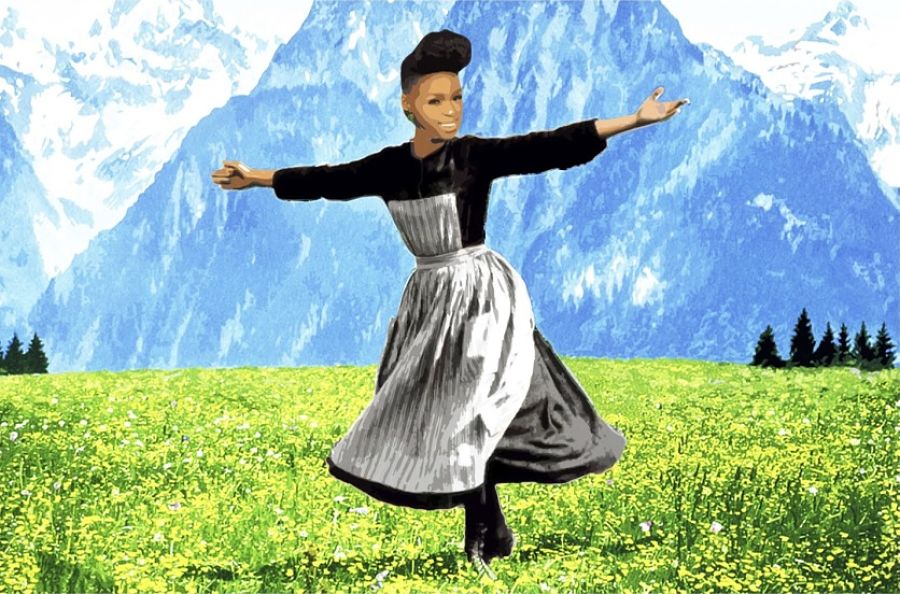The stories told in the theatre are more than texts—they are also bodies, faces, persons. Words are made flesh, and spirits breathe life into fictional worlds.
This is true even when we are merely dreaming of theatre, of plays we’ve seen or would like to see: the who is as important as the what. Indeed these two pronouns are inseparably entwined in a live, enacted medium. With COVID rendering in-person theatre either historical or theoretical for the time being, all we can do, to paraphrase Roy Orbison, is dream theatre. We thought it would be stimulating, vivifying—heck, we’ll say it, fun—to see what some of the most imaginative minds in and around the theatre could dream up. So for our “dream casting” project we asked a wide range of theatremakers and theatre watchers to recommend revivals they’d like to see, and to populate them with performers they love. Our exact prompt was as follows:
What classic play or musical (defining “classic” as broadly as you like) would you most like to see revived, and who would you put in your dream cast?
To anticipate a few likely objections: Obviously we know there are living playwrights, working right now on plays we will all rush to see when theatres safely reopen; and for what it’s worth, I don’t think American Theatre’s credentials as a new-play champion can seriously be in question. But for the sake of this exercise, we felt it was important to include an element of familiarity, some known quantity, for this theatrical thought experiment—hence the call for a “classic,” though our scare quotes were meant to invite respondents to think outside the supposed canon box if they chose.
So we were happy to see that many respondents went well beyond the question and reinscribed it with the rejoinder, either explicitly voiced or implied: The idea of “classic” is too often wielded as a shield or a weapon of the dead against the living, and in defense of a white European purported canon against the voices of Black, Indigenous, and people of color (BIPOC), and any number of other marginalized voices. We were also happy to see a number of folks reinterpret classic stories and tropes in entertaining new ways. Some even look forward to future classics, and at least a few of these dream projects would require time travel and/or bodily resurrection to come to fruition.
On a more serious note, respondents like Lisa Portes and Lee Edward Colston II pushed back on the entire premise, echoing an idea August Wilson put forth in his famous “The Ground on Which I Stand” speech: that simply slotting people of color into roles originally conceived and performed as white is a kind of invidious tokenism that continues to center the white canon as “universal.” It is not quite a resounding counterpoint to this valid point see the names of Wendell Pierce and Phylicia Rashad—two of many brilliant Black actors who have acted in “white” roles to great acclaim—appear repeatedly in these dream casts, or to point to the presence if not predominance of writers of color among the wished-for “classics.” The argument over the canon may have to wait for another day; what seems inarguable to us is that without great actors, we wouldn’t have heard, let alone continued to dream, of any of these plays.
Another element of familiarity is extant in many of these recommendations—i.e., many recommended famous or at least moderately well known actors, all the better for a wide range of us to “see” the idea in our heads. So we give a special shout-out to the likes of Evren Odcikin, Lisa Portes (again), and Jennifer Decker for keeping their casting suggestions local, and we stand in grateful awe of the effort by Cornerstone’s Michael John Garcés, who took this prompt as an opportunity to celebrate a decade of work with many of the community members and activists who populate his theatre’s shows.
Without further ado, here are the dream casts of a virtual dream team of American theatre folks.
Ada Karamanyan, casting associate, Playwrights Realm
Not exactly classic, but it must be stated: It’s absolutely criminal that nobody has yet cast Katrina Lenk as Edith Piaf in Pam Gem’s Piaf. To the producer who bites, you’re welcome. Match her up with Vanessa Kai as Toine while you’re at it.
I’d love to see The Heiress with Mahira Kakkar and Sathya Sridharan as Catherine and Morris, respectively.
Someone ought to cast Pooya Mohseni, Aneesh Sheth, and Kita Updike as Olga, Masha, and Irina, respectively, in Three Sisters. Rounding it out, Patti Harrison as Natalya and Haruna Lee as Andrey.
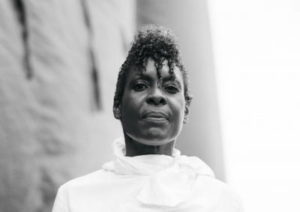
Seattle actors Mary Ewald and Julie Briskman as Vladimir and Estragon, respectively, in a Beckett estate-blessed, femme-led Waiting for Godot. Is the dictionary a classic piece? I’d pay a ton to see them read that out loud too, they’re so good.
Gregg Mozgala ought to do that Ian McKellen-plays-everyone-in-Shakespeare-ever show. Barzin Akhavan and Angel Desai in The School for Scandal would be delicious (omg, with Michelle Beck as Sneerwell? Dreaaaaamy). Lastly, how about Ronald Peet in Hamlet, Taylor Mac and Kim Wuan in Pygmalion, Helga Davis in Mother Courage (omg omg), Chinasa Ogbuagu in Medea, and the glorious Terri Weagant in Happy Days.
Aurin Squire, playwright
I’m not really good at the casting game. But I guess I would love to see Waiting for Godot in all-woman version with dramatic actors who have great comedic timing but rarely get to use it:
Vladimir: Phylicia Rashad
Estragon: Linda Lavin
Pozzo: Diane Wiest
Lucky: Sarah Jones
Boy: Condola Rashad
Bart DeLorenzo, director
The classics we need right now are all old and Greek, but they have to be revived with energy and humor and irony—and of course, pity and terror. I’d like a festival of rarer visions. Let’s see Don Cheadle as Philoctetes, and add Jeffrey Wright reuniting as his nemesis Odysseus (with Timothee Chalamet as the young Neoptolemus?). Adapted by Aleshea Harris? An Alkestis with Lakeith Stanfield as the king mourning a dying Phillipa Soo, and then Jack Black as the drunken Herakles intrudes. With Oscar Isaac as the god Apollo. (Can Branden Jacobs-Jenkins adapt?)
And I’d love to see Megan Mullally as Euripides’ Helen, a few years after that Trojan war, and maybe Len Jenkin or Chuck Mee can adapt it so she’s singing nightly at a beach shack honkytonk when a grizzled Nick Offerman as her husband Menelaus washes ashore. (NB: I’m available to direct all these.)
Bill Rauch, artistic director, Perelman Center
Maybe because I want to run screaming from so many of the horrors of 2020, all of my casting ideas involve classics of the future and time travel.
I see Peppermint and Taylor Mac starring in a two-hander that is destined to become a classic, co-written by Oscar Wilde, Charles Ludlam, and Jeremy O. Harris. (Now that’s a writers’ room wall I want to be a fly on!)
Cornerstone Theater Company’s ensemble undertakes a community-based play in rural Arizona written by Federico Garcia Lorca, while any number of Oregon Shakespeare Festival company members appear in a newly commissioned work by Lorraine Hansberry (created through an intensely collaborative workshop/rehearsal process).
Ira Aldridge makes a triumphant tour of the United States in Lynn Nottage’s new play for a solo actor, to be revived for centuries to come.
After seeing DeLanna Studi, Francis Jue, and Ann Dowd in a new comedy by the 1491s, European settlers think better of their colonial plans and turn back home—a true classic with long-lasting impact.
Caridad Svich, playwright
Cat on a Hot Tin Roof by Tennessee Williams
Maggie: Gregg Mozgala
Brick: Jo Lampert
Big Daddy: April Matthis
Big Mama: David Greenspan
Gooper: Ali Stroker
Sister Woman: William Jackson Harper
Dr. Baugh: Vinnie Burrows
Deacon Davis: Joel Perez
Charles McNulty, theatre critic, Los Angeles Times
While waiting for Mark Rylance to bring us his (and our) definitive Lear, I’d love to see him illuminate Molière’s gallery of darkly ambivalent comic figures, perhaps starting with a production of Tartuffe in which he gives us both sides of the fanatical middle-aged male equation by alternating the roles of Tartuffe and Orgon. And between her future performances of Dolly Gallagher Levi in Hello, Dolly! and Rose in Gypsy, I hope Audra McDonald will tackle the title character of Euripides’s Hecuba, a revenge tragedy in which justifiable maternal fury turns depraved in a society demoralized by war.
But having just seen Viola Davis in Ma Rainey’s Black Bottom, I’m flipping avidly through the classic repertoire for another Everest for her to climb. At the moment I’m dreaming of Davis as Masha in Chekhov’s The Three Sisters, in a George C. Wolfe production with Sophie Okonedo as Olga and Anika Noni Rose as Irina. And since this is a fantasy exercise, Brian Tyree Henry will play passive Andrei, Laurence Fishburne will take on moony Vershinin, and Taraji P. Henson will remake rapacious Natalya in her own long-fingernailed image.
Chay Yew, playwright/director
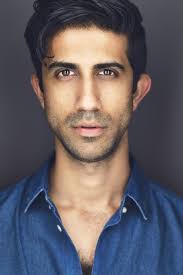
It would be a pure joy to see Asian American actors be invited to work on Chekhov. Chekhov and the other classics often seem out of reach for them, and even for me as director. If Classic Stage Company calls, this would be my cast for The Cherry Orchard. But like you said, it’s a dream…
Ranyevskaya: Sandra Oh
Lopakhin: Sathya Sridharan
Gayev: Francis Jue
Varya: Jennifer Ikeda
Anya: Shazi Raja
Trofimov: Raymond Lee
Pischik: Joel de la Fuente
Charlotte: Ann Harada
Firs: Lori Tan Chinn
Yephikodov: Nik Sadhnani
Yasha: Mitchell Winter
Dunyasha: Jeena Yi
Chris Coleman, artistic director, Denver Center Theatre Company
Well, the actor I’ve been thinking about lately is Ken Leung, who was electric as a brilliantly abusive boss in HBO’s Industry, so I’d build most anything around him. What comes to mind first is:
Death of a Salesman by Arthur Miller
Willy Loman: Ken Leung
Linda Loman: Karen Pittman (who I loved in Disgraced and on last season’s Homeland)
Biff Loman: Michael B. Jordan (because, why not?)
Happy Loman: Raymond Lee (who was so good in Vietgone and HBO’s Here and Now)
Charley: Reggie Lee
Bernard: Ray Lee
Ben: Cary-Hiroyuki Tagawa
The Woman: Teresa Ruiz
Howard Wagner: Sterling K. Brown
Stanley: Daveed Diggs
Miss Forsythe: Stephanie Hsu
Letta: Mila Kunis
Jenny: Debra Jo Rupp
Dámaso Rodriguez, artistic director, Artists Repertory Theatre
The Skin of Our Teeth by Thornton Wilder is a play about the world ending, and beginning, and ending, and beginning again and again, with theatre as the metaphor inside the allegory. It stars the Antrobus Family. Antrobus means “human or person,” and the cast has the task of representing the human family while honestly playing Wilder’s absurd scenarios and hilarious shifts in setting, tone and style. It’s probably impossible, but fun to try!
Mr. Antrobus: Wendell Pierce
Mrs. Antrobus: Sheila Tousey
Gladys: Awkafina
Henry: Oscar Isaac
Sabina: Katrina Lenk
The Ensemble: As many people from the community as possible—hundreds over the course of the run. Every performance, when the play breaks in Act III, a new cast from the community will step in as themselves to save it
David Cote, theatre critic, New York Observer
Who’s Afraid of Virginia Woolf? by Edward Albee (HBCU edition)
Martha: April Matthis
George: Colman Domingo
Nick: William Jackson Harper
Honey: Condola Rashad
The Zoo Story (backup Albee)
Jerry: Jeremy O. Harris
Peter: Sterling K. Brown
The Designated Mourner by Wallace Shawn (Playwright/performer edition)
Jack: David Greenspan
Judy: Young Jean Lee
Howard: Tracy Letts
David Kurs, artistic director, Deaf West Theatre
The act of staging American Sign Language (ASL) revivals of classics remains a subversive act to me. Placing a historically marginalized language front and center can be an act of rebellion against the audiocentric tendencies of the authors. Adding a visual modality demands that the audience process the piece and all of its underpinnings through the eyes. Revivals are also a portal into the form for future Deaf theatre artists, who can then center our world and language.
When I think about dream casts, I inevitably assemble lineups from all of Deaf theatre history, like the all-time NBA Dream Team lists. Dot Miles (departed) and CJ Jones in Ionesco’s The Chairs. Long Day’s Journey Into Night with Phyllis Frelich (departed) as Mary, Joe Velez (deceased) as James, Joe Sarpy as Jamie, Michael Spady as Edmund, and Millicent Simmonds as Cathleen.
The backstage oneupmanship would be legendary! Ghosts and the living together, hands flying in the air.
When I dream, I don’t see ASL in real time. Communication takes place and I can experience it, but I don’t see lips or hands moving. I think about collabs such as Troy Kotsur (Max Bialystock) and Tituss Burgess (Leo Bloom) in The Producers. Jasper Norman (Tommy) paired with Cynthia Erivo (Mrs. Walker) and Russell Harvard (Captain Walker). Lauren Ridloff and Michael Cerveris in My Fair Lady.
TikTok has been a balm during the pandemic. Deaf kids are expressing and playing with signed music on their own terms—they’ve become theatre kids and they don’t know it. TikTok fame could open doors that would not otherwise be there and propel them into the world of Merrily We Roll Along. Is it bad that I don’t know many of their real names yet? @slntwrlddd as Franklin, @yeathatsgabby_ as Mary, @gio..24 as Charley, @itscharmay as Gussie, and @phillyqt12 as Beth. After the show they could go backstage and kick it with the ghosts.
Doug Peck, music director
I have two:
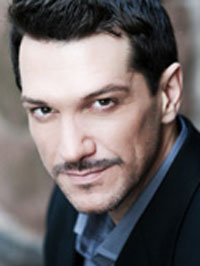
Revisiting Maury Yeston’s glorious score for Nine with a contemporary perspective on the patriarchy and male misdeeds in the industry is overdue. My dream cast:
Guido Contini: Paulo Szot
Luisa del Forno Contini: Audra McDonald
Claudia Nardi: Solea Pfeiffer
Carla Albanese: Carly Hughes
Stephanie Necrophorus: Katrina Lenk
Our Lady of the Spa: Laverne Cox
Guido’s Mother: Julia Migenes
Liliane La Fleur: Alexandra Billings
Saraghina: Sara Ramirez
Mama Maddelena: Christine Goerke
And I want to see Jeremy O. Harris adapt Le nozze di Figaro. Beaumarchais’s play and Mozart/Da Ponte’s opera shook the world the way that Jeremy’s work does today, and it’s time to feel that power again. With this company, Marcellina and Don Basilio get their often-cut arias!
Figaro: Daniel Breaker
Susanna: Eva Noblezada
Countess Almaviva: Audra McDonald
Count Almaviva: Paulo Szot
Cherubino: Ezra Furman
Marcellina: Keala Settle
Dr. Bartolo: Ken Page
Don Basilio / Don Curzio: André DeShields
Barbarina: Hailey Kilgore
Antonio: B.D. Wong
Elisabeth Vincentelli, theatre critic, The New Yorker and The New York Times
Who’s Afraid of Virginia Woolf? by Edward Albee
George and Martha: Fiona Shaw and Janet McTeer, alternating nightly
Honey: Joaquina Kalukango
Nick: Zachary Levi
The Milk Train Doesn’t Stop Here Anymore (because I love crazy Tennessee Williams plays)
Mrs. Flora Goforth: Charles Busch
Christopher Flanders: Chris Evans
Witch of Capri: Sasha Velour
Blackie: Kristine Nielsen
The Children’s Hour by Lillian Hellman
Karen White: Ashley Park
Martha Dobie: Emma Stone
Mary Tilford: Kiernan Shipka (I think she can pass for a schoolgirl)
The Misanthrope by Molière
Alceste: Steven Boyer
Célimène: Amanda Seyfried
Philinte: Ato Blankson-Wood
Arsinoé: Annie McNamara
Emjoy Gavino, actor/casting director
This was such an incredibly fun thing to work on…
- Sandra Oh as Lady Macbeth or Macbeth in Macbeth
- K. Todd Freeman as Lady Macbeth or Macbeth in Macbeth
- Michael Patrick Thornton as the Emcee in Cabaret
- Tzi Ma as Willie Loman in Death of a Salesman
- Garcia as Joan in Saint Joan
- Behzad Dabu as C.K. Dexter Haven in The Philadelphia Story
- Alana Arenas as Gabby/Bobbi in City of Angels
- Elle Walker as Blanche in A Streetcar Named Desire
- Maya Erskine as Sally Bowles in I Am a Camera
- Ako as everyone in The Search for Signs of Intelligent Life in the Universe
- Jojo Brown as Cathy in You on the Moors Now
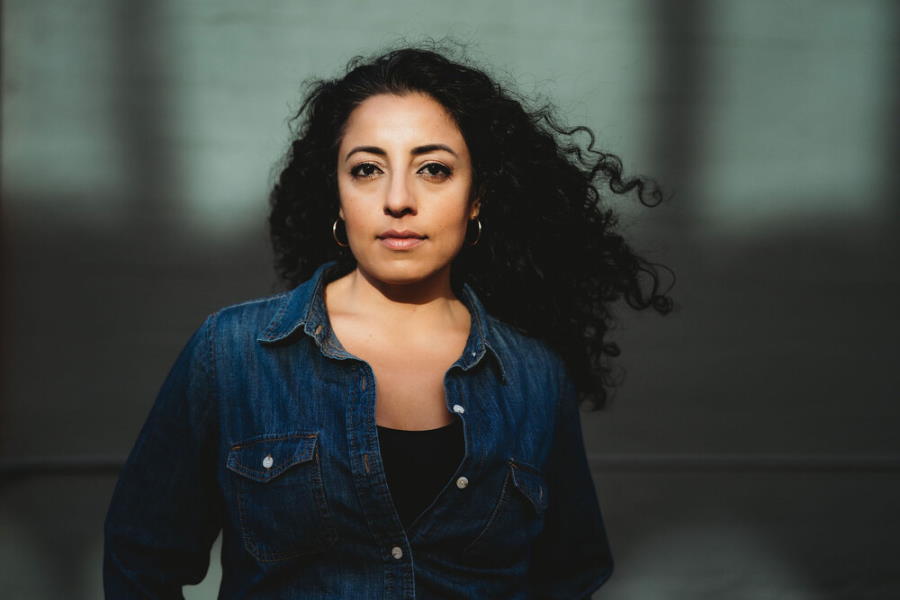
Evren Odcikin, associate artistic director, Oregon Shakespeare Festival
I’ve been thinking a lot about Medea these days. Something about this archetype of an evil woman feels thorny and unwieldy enough to want me to sink my teeth into. The patriarchal structure within which Medea must survive and the narrow lens the play has on this woman of boundless ability and imagination feels especially timely right now. I’ve never been one for celebrity, so my dream cast for a production of Medea is a love letter to the incredible BIPOC actors of the Bay Area, which was my artistic home for 15 years.
Medea: Denmo Ibrahim (Medea is a Middle Eastern immigrant, and Denmo has the roar and the heart to tackle this iconic role)
Jason: Aldo Billingslea (I find the idea of a man of color as Jason super interesting. There is much to unearth about the social climbing he takes part in to get ahead within a racist structure. Also, Aldo Billingslea!)
Nurse/Messenger: Jacqueline Antaramian (Fine! I am breaking my Bay Area rule here, and going with my fan-boy instincts. The idea of working with the Jacqueline Antaramian to dig into that gruesome Messenger monologue makes me a little giddy)
Kreon: Julian Lopez-Morillas (Nobody does bombastic masculinity crossed with emotional vulnerability like Julian)
Aegeus: Rotimi Agbabiaka (I love Rotimi’s comedic instincts, and I know he would reveal a tone within Medea’s seduction of Aegeus that would be a welcome respite in this doom-and-gloom ride)
Tutor/Chorus Leader: Margo Hall (I can’t imagine anyone but Margo leading this chorus of increasingly badly behaved women. Also, if you can cast Margo Hall, you cast Margo Hall)
Chorus of Corinthian Women: Jeunée Simon, Sarita Ocón, Charisse Loriaux (I’m putting three of my favorite ensemble/physical/generative actors in the Bay Area in this chorus together because I can)
Georgia Stitt, composer
I have been looking at this email for a while, but I don’t think I’m going to play, because I’m too worried about leaving someone out! Put Kate Baldwin in everything, I say. And someone please revive Shelter by Gretchen Cryer and Nancy Ford. And bring Ta’Rea Campbell to Broadway in a one-woman cooking-while-singing-showtunes extravaganza. That’s what I’ve got.
Hana Sharif, artistic director, Repertory Theatre of St. Louis
Long Day’s Journey Into Night by Eugene O’Neill
Mary Cavan Tyrone: Angela Bassett
James Tyrone: Denzel Washington
Edmund Tyrone: Amari Cheatom
James Tyrone Jr.: Brandon Dirden
Cathleen: Danaya Esperanza
Henry Godinez, actor/director & professor of theatre, Northwestern University
Here is my dream casting for a revival of Man of La Mancha. It’s based on an idea my daughter has for a production of the musical set in a detention center on the Mexico/U.S. border. Here you go:
Cervantes/Don Quixote: Jimmy Smits
Aldonza: Karen Olivo
Barber: Lin-Manuel Miranda
Niece: Mj Rodriguez
Housekeeper: Gloria Vivica Benavides
Priest: Mark Espinosa
Governor/Innkeeper: Herbert Siguenza
The Duke: Frankie Alvarez
Ike Holter, playwright/director
Sweeney Todd by Stephen Sondheim and Hugh Wheeler
Sweeney Todd: Joshua Henry
Mrs. Lovett: Renée Elise Goldsberry
Pirelli: Keegan Michael Key
Judge Turpin: James Monroe Iglehart
August: Osage County by Tracy Letts
Violet: Tonya Pinkins
Barbara: Anika Noni Rose
Mattie: Loretta Devine
Charles: Norm Lewis
The House of Blue Leaves by John Guare
Bunny: Rosario Dawson
Artie: John Leguizamo
Bananas: Daphne Rubin-Vega
Jacob Padrón, artistic director, Long Wharf Theatre
She Loves Me by Joe Masteroff, Jerry Bock, and Sheldon Harnick
George: Jason Tam
Amalia: Rebecca Naomi Jones
Ilona: Karen Olivo
Kodaly: Daveed Diggs
Arpad: Robin De Jesús
Sipos: Christopher Jackson
Maraczek: Kevin Mambo
Head Waiter: I’d cast a woman in this role—like Lilias White
Jennifer Decker, artistic director, Mildred’s Umbrella Theatre Company
We are a theatre that focuses on women, and the “classics” are male-heavy, so I chose two that I felt had a few good roles for women, as well as ones where whiteness wasn’t kind of part of the plot, so I could be diverse.
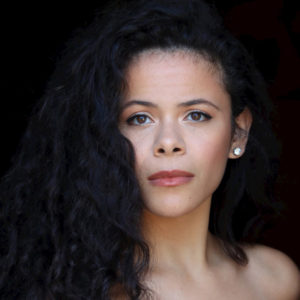
A Midsummer Night’s Dream by Shakespeare
Theseus: Luis Galindo
Hippolyta: Christie Guidry
Hermia: Madeline Calais
Lysander: Rhett Martinez
Demetrius: Xavien Hollins
Helena: Arianna Bermudez
Peter Quince: Joel Sandel
Nick Bottom: Greg Dean
Francis Flute: Wesley Whitson
Tom Snout: Blake Weir
Snug, a joiner: Karina Pal Montano
Robin Starveling: Ryan Kelly
Oberon: Sean Patrick Judge
Titania: Patricia Duran
Robin “Puck” Goodfellow: Lyndsay Sweeney
Steel Magnolias by Robert Harling
Shelby: Madeline Calais
M’Lynn: Patricia Duran
Ouiser: Tamara Siler
Clairee: Lyndsay Sweeney
Truvy: Karina Pal Montano
Anelle: Lindsay Ehrhardt
Jose Solís, critic, Token Theatre Friends
Decades from now I want to see Karen Olivo as Claire Zachanassian in a revival of Kander & Ebb’s The Visit. I salivate at the idea of listening to her rendition of “Love and Love Alone,” while her former flame Anton Shell (Joshua Henry) looks back at the havoc he wreaked on her. His wife Matilde, as played by Lindsay Mendez, will shine brightly in “Yellow Shoes,” while Claire’s Eunuchs (Lin-Manuel Miranda and George Abud, returning to the show in which he made his Broadway debut) will provide much needed comic relief in this tale of love gone wrong.
Kenny Leon, director
A dream cast of Two Trains Running with Samuel L. Jackson as Memphis, Sanaa Lathan as Risa, and Laurence Fishburne as Holloway. Wesley Snipes and Rocky Carroll would also be in the cast.
Kirsten Childs, composer/playwright
Here’s my dream cast and play, and I’d fall out laughing in delight and horror to see it!
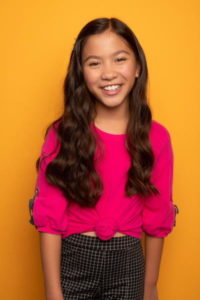
The Bad Seed by Maxwell Anderson
Rhoda Penmark: Audrey Cymone
Christine Penmark: Nikki James
Leroy Jessup: Daveed Diggs
Monica Breedlove: Myra Lucretia Taylor
Emory Breedlove: Orville Mendoza
Reginald Tasker: Michael Benjamin
Richard Bravo: Paolo Montalban
Claudia Fern: L Morgan Lee
Hortense Daigle: Ashley D. Kelley
Dwight Daigle: James T. Lane
Kenneth Walker: Kevin Massey
Lee Edward Colston II, playwright
Truthfully, I find the framing of the question itself to be a part of the problem. Even with the caveat to define “classic” as broadly as possible, the word “classic” itself is and always has been a dog whistle that secretly means “important to white people.”
The idea of retroactively imagining POC in roles that historically we’ve been denied, for me, doesn’t help move the conversation forward. Why? Because it centers the past as the North Star on our compass. Placing POC actors in roles that were often written for white people, while a “fun” thought exercise, to me is not helpful.
The real way to help is to completely reframe the question and ask:
Which BIPOC playwrights or plays would you love to see be amplified or reimagined and who would be your dream cast?
and
What dream casts would you like to see burn up the stage in a new play by which of your favorite playwrights of color?
For example:
- Bryan Tyree Henry and Jonathan Majors in Topdog/Underdog
- Denzel Washington and Phylicia Rashad in a new Marcus Gardley play
- Jamie Foxx and Aunjanue Ellis as Floyd and Vera in Seven Guitars
- Danai Gurira and Zainab Jah in a new Jocelyn Bioh play
- Jonathan Majors and Jurnee Smollett in Donja Love’s Fireflies
- Viola Davis, Alfre Woodard, Lupita N’yongo, Laurence Fishburne, and Samuel L. Jackson in a new Dominique Morisseau play
The reframing of this question accomplishes two things: It decenters white people and their “classics” from the conversation, and it challenges us as readers to imagine a future for inclusion in the American theatre as opposed to reminiscing about a past that has historically excluded us.
This isn’t to say we shouldn’t reimagine plays written by white writers that have historically been cast with white actors. However, it is an invitation to imagine beyond those writers and works to exclude them from the conversation in service of repairing the harm casting and programming has done to BIPOC actors and writers.
Imagining an American theatre that doesn’t center whiteness is revolutionary. Imagining an American theatre that tries to retroactively fit POC into spaces we were never meant to fit in the first place is not.
Lisa Portes, director & head of directing, Theatre School at DePaul University
It’s interesting, right? Until recently, representation was the name of the game, but we’ve evolved even in the last year. While Hamilton turned the world upside down by turning history on its head and reimagining our white founding fathers as Black and brown men, does ignoring the actual history of Black and brown men in this country help us better understand ourselves? (I personally love Hamilton and place it squarely in the genre of sci-fi.) A friend of mine, the brilliant Azar Kazemi, recently turned me on to an article by film scholar, Kristen J. Warner titled “Plastic Representation,” in which Warner argues, “Swapping in and out racial groups with little adjustment to the parts themselves retains the original work as the primary driver and as a result marks the changes as superficial.”
So it’s tricky when we’re considering casting iconic roles in the predominantly white classic canon. But there are some killer roles and unshakeable stories in that canon, and when those stories are interrogated through new eyes I believe they can still reveal us to ourselves.
So here’s my dream Hamlet.

For me Hamlet is about young people forced to make decisions in a world poisoned by the generation in charge. I teach and see us graduate brilliant young people into this increasingly chaotic world every May, and every May I want to scream, “We are sending them into a poisoned world!” I’m also taken by the destructive generational gender rules at play in the world: that sons must avenge their fathers, daughters must obey their fathers, and the ways Hamlet and Ophelia problematize those rules. I’m interested in creating a world in which gender rules are exposed and interrogated, and traditional power structures are likewise revealed as the poison poured in the ear.
Also, fyi, my dream casts are always Chicago, so if y’all don’t know who these folks are, look ’em up!
Hamlet: Avi Roque
Gertrude: Sandra Delgado (I always wonder where Gertrude’s silence comes from)
Claudius: Tracy Letts
Ghost: John Malkovich (while we’re dreaming…)
Horatio: Isa Arciniegas
Ophelia: Jasmine Davis
Laertes: Matthew Elam
Polonius: Robert Cornelius (What if Polonius’s clowning is an act/coping mechanism?)
Rosencranz: Garrett Young
Guildenstern: Mary Tilden
Gravedigger: Molly Brennan
Fortinbras: Ty Defoe (my only “out-of-town” actor, who really must play the person who takes back the land and changes the world)
Lucas Hnath, playwright
I would love to see a production of Patrick Hamilton’s classic thriller Gas Light with the following cast:
Quincy Tyler Bernstine as Bella, a woman who is being gaslit by her husband
Becca Blackwell as the gaslighting husband, Jack
Epatha Merkerson as Rough, the inspector who helps Bella spoil the husband’s plot
Phillip James Brannon as Nancy, the duplicitous maid who’s in on the husband’s scheme
Kate Bornstein as Elizabeth, the other maid and faithful ally to Bella
I think that cast could breathe fresh air into an old chestnut. That said, Gas Light does get produced on occasion, so I also have a deeper cut, a play that almost never gets done: The Successful Life of 3 by María Irene Fornés. To play this breezy vaudeville, I’d cast:
Jocelyn Bioh as She
Bobby Moreno as He
Becca Blackwell as 3
The play also features some extras, “police” and “bodyguards,” and I’d fill those parts with children.
Maria Manuela Goyanes, artistic director, Woolly Mammoth Theatre Company
Our resident group sales manager/resident Ph.D. Emily Lathrop offered a great idea: Knight of the Burning Pestle by Francis Beaumont, with Jelani Aladdin, Mj Rodriguez, LaTanya Richardson, and Stephen McKinley Henderson. I’ve never seen it, but with those actors in the room—take my money!
Marshall Jones III, director
In the canon of classic American plays about the Black experience, I would like to see a 20th-century classic done in rotating rep with a 21st-century future classic: A Raisin in the Sun and Pipeline. The roles basically match up and I believe both plays speak directly for the time they were written. Sadly, Raisin still rings true today, and I have the feeling that 60 years from now, Pipeline will too.
Artistic directors who steal this idea: I wanna be considered to direct.
Lena Younger in Raisin: Oprah Winfrey
Ruth Younger in Raisin/Nya in Pipeline: Viola Davis
Beneatha Younger in Raisin/Jasmine in Pipeline: Jurnee Smollett
Walter Lee Younger in Raisin/Xavier in Pipeline: Mahershala Ali or Idris Elba
Joseph Asagai in Raisin/Dun in Pipeline: Daniel Kaluuya
Bobo in Raisin/Omari in Pipeline: Michael B. Jordan (might be an age stretch)
Karl Lindner in Raisin/Laurie in Pipeline: Mariska Hargitay (Karl still male but played by a woman)
Megan Sandberg-Zakian, director
I propose a 21st-century American version of The Sound of Music in which Maria (Janelle Monae), an angel-faced girl too sensual to be a nun who loves to hike in the mountains with a butch haircut dressed in clothes made from curtains, is sent to take care of the many children of Captain von Trapp (Sara Ramirez). They get dressed up and dance at a party with everyone watching, and Maria feels confusing feelings. The fortune-hunting Baroness Schraeder (Mj Rodriguez) comes up to Maria’s bedroom, tells her she looks beautiful in her dress, one thing leads to another, and the Baroness realizes she was hunting the wrong fortune all this time.
Before Maria and the Baroness can break the news of their union to the Captain, they suddenly have to collect the children and escape from the Nazis by singing in a music festival, during which Von Trapp realizes he has feelings for his old friend, musical agent Max Detweiler (Lea deLaria). They all escape to Canada, I mean Switzerland, and live queerily ever after with great healthcare. Also starring Lisa Kron as the cranky nun who believes you actually cannot solve a problem like Maria, Nikki Blonksky as the nun who thinks you totally can, and Julie Andrews as Mother Superior.
Michael Breslin, theatremaker
One of the Broadway productions I always dream of retroactively seeing, in my mind’s eye, is the Pearl Bailey Hello, Dolly!, an all-Black revival from 1967. On Twitter the other day, after too much champagne, I dreamed of a Cardi B-led Dolly streaming revival. I decided to take this opportunity to flesh out that idea a bit here, drawing on inspiration from that production. There’s also some cross-gendered casting, because we also deserve some queer Hello, Dolly!. Of course, I’m not the one to cast or direct that show in real life. This is all in my imagination!
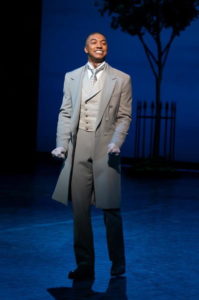
Dolly Levi: Cardi B (who has star power oozing from her acrylic nails and a stage presence not dissimilar from the great Carol Channing’s. This is the obvious choice to me)
Horace Vandergelder: Lena Waithe (she’s young-ish for the role, but “It Takes a Woman” would work as a drag number and IMO bring out the irony of the song as intended)
Cornelius Hackle: Christian Dante White (who I saw in the role on Broadway and absolutely loved. His “Only Takes a Moment” was gorgeous)
Barnaby Tucker: Jakeem Dante Powell (if you didn’t catch him as an understudy in Slave Play, watch out. Jakeem. Is. It. and the dance moments would be glorious)
Irene Malloy: Renée Elise Goldsberry (the most obvious answer is usually correct!)
Minnie Fay: Larry Owens (could you imagine “We’ve got elegance”? I would melt. And I think Larry would give Cardi a run for her money, comedically, especially in “Motherhood.” I would die to see Jakeem and Larry end up together)
Michael John Garcés, artistic director, Cornerstone Theater Company
Given the prompt, I considered the word “classic”—I’m resistant to the word, but decided I love too many contemporary writers in this current golden age of playwriting to choose one. So, a “classic”—or, at least, a play written a long time ago that feels like it could matter.
The notion of “dream cast” put me in mind of Calderón de la Barca’s La vida es sueño. But a Spanish “classic” that feels a bit more resonant to me in the present moment is Lorca’s surrealist masterpiece, Así que pasen cinco años. This play is an exploration of, among other things, the traps and tricks of time; the vulnerabilities and yearnings of solitude; the exposure and danger of proximity; the fragile border between isolation and connection; the perceptual fluidity between the “subjective” (the surreal) and the “objective” (the real); and the undercurrent of social disintegration, of political fracture, of structural oppression, of impending violence, of fascist impulses that threaten damage and death in clownish but also deeply serous ways. So, yeah.
I imagine this production could be in Spanish, but also would be delighted to use Caridad Svich’s remarkable translation.
When I think of “dream cast,” I imagine the many astonishingly talented professionals I’ve had the luck to work with over the years, and do not have much motivation to look beyond them out of some aspiration to work with seemingly out-of-reach “stars.” I feel like I could put together any number of fantastic, insuperable casts, starting with the incredibly talented and dedicated ensemble actors at Cornerstone.
But I think my real dream—and where I am and have had the privilege of deriving inspiration since long before the pandemic—would be to work with people from all walks of life, from the infinitely complex fabric of communities around me, people who bring fresh energy to the notion of performance, who bring authenticity of voice but real depth of characterization too. So I looked back over all the many productions I’ve had the privilege to work on at Cornerstone and chose a few who stand out it memory that I might cast in these roles. There are so many amazing people to choose from—looking back over programs and contact sheets I fall in love, again, with the many amazing individuals who’ve spent weeks with us, working hard to make a play about and for their communities. So it was hard to choose, but of course, the main thing you need to do to make a play is to make choices. So I have.
Joven: Jayleen Chavarria brings an irrepressible, authentic youthful energy to her performance, with emotional range and depth. She is a junior in high school in Highland Park, Calif., where she has lived all her life
Criado: Frank Boheim has a sly humor and a deep connection to service that would bring nuance and credibililty to this role. He is a retired cafeteria worker for LAUSD and a radical peace activist
Viejo: Ivy Botinni has gravitas and a profound reservoir of empathy and compassion. She is an American women’s rights and LGBT rights activist and artist
Mecanógrafa: Mónica Martínez is a passionate performer who would bring nuance and and a necessary idiosyncratic energy to this character. Mónica immigrated to Arvin, Calif., from Guanajuato, Mexico, and is a high school teacher in Bakersfield
Niño muerto: David Dávila is capable of both strength and real vulnerability, and would give this character an ambiguous charisma. He got involved with Cornerstone through Homeboy Industries
Gata muerta: Lorraine Cooley is fierce, articulate, and passionate, and would bring a grounded energy to match David’s fluctuating highs and lows. She a graduate of the San Carlos Apache High School on the beautiful Apache reservation
Amigo I: Lynette Alfaro brings an unmatchable realness to the stage. She is authentically herself in a non-performative manner that is rare in the theatre. Lynette is a former gang member who participated in programs at Homeboy Industries
Amigo II: Terri Jay is a powerful presence and eloquent speaker who would partner with Lynette to make the scenes with the friends indelible. Terri is a proud Native American Indian trans woman, and also a member of the Navajo/Zuni Tribes from the state of New Mexico who has worked with trans women of color who suffer from issues of addiction and homelessness
Novia: Tracey Leigh Turner would bring delicacy, nuance, and impeccable comic timing to this role. She is an actor and disability rights activist who is determined to make a difference in the world
Jugador de rugby: Nico Marcolongo brings a rambunctous, unpredictable energy to the stage, and his physical athleticism would make this role believable, dangerous, and funny. He is a Marine and Iraq conflict veteran who leads a program for injured veterans at the Challenged Atheletes Foundation
Criada: Maria Refugio Jacinto, a housekeeper and workers rights activist, would bring dignity and pride to this role
Padre de la novia: Frank Ayala is a self-described “gentle giant” who would give this role the needed intimidation factor, but we’d fall in love with him regardless. He comes from a farm worker family, is a former Marine, drove a truck for 40 years, and, now that he’s retired, loves to travel and write about his family
Maniquí del traje de novia: Bishara and Rokia Moallim are Somali Amarican sisters who live in the Twin Cities. Their exubarant humor and gleeful subversivnesss would make make them an excellent duo to play this theatrical character as a duo
Arlequin: Joel Jimenez is flat-out funny, has a gift for imitation, and loves to mess with people, all of which plays strongly onstage—a perfect Harlequin character. He was born and raised North East L.A.; he is a skateboarder, drummer, and standup comic
Payaso: Joji Koyuri’s antic comedic instincts would make him a great clown partner for Joel’s laidback coolness. Joji, who was born in Vietnam, is a true San Franciscan and spent many years as a caretaker for his beloved mother
Muchacha: Rosa Maria Perez Tinajero is a quietly luminescent figure onstage, with understated but clearly felt steel beneath the surface, ideal for this role. She is an immigrant single mother and an agricultural worker in the Salinas Valley
Máscara italiana: A powerful singer and direct, connected actor, Sherri Nelson would make this strange and complex figure distinct and clear. She was a long-time homeless resident of Los Angeles Arts District
Los tres jugadores de cartas: Lee Maupin, Kelcey Mosley, and Desiree Jade Sol are three people I’d love to play cards with, even though I’m quite sure they’d take me for every penny I’d care to ante up. They are each, in their own distinctive way, charismatic, sharp, smart, and witty—perfect to play the fates. Lee is a company member at the Los Angeles Poverty Department and a Skid Row resident. Kelcey is a Native and African American from the Gila River Indian Community. Desiree is third generation Mexican American and an LGBT rights activist from West Hollywood
Eco: Lisanne’s haunting voice would be a perfect offstage element to give musicality to the echo that ends the play, and would likely be an element that we’d integrate throughout the play. A former patient in a forensic clinic, she is an aspiring singer
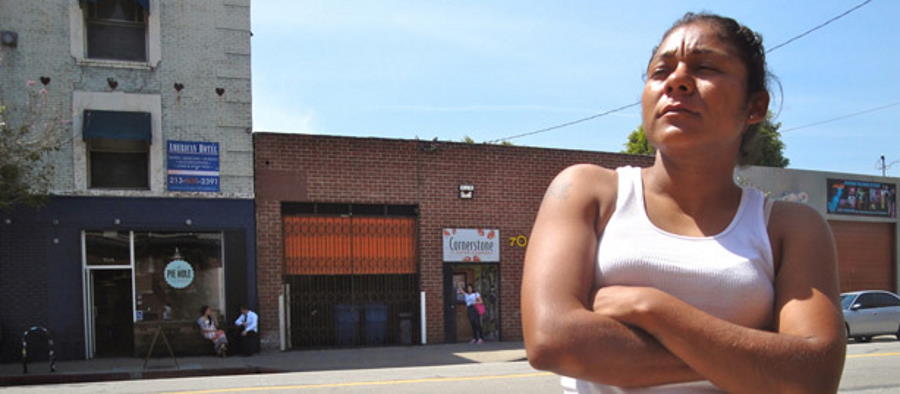
Paige Price, artistic director, Philadelphia Theatre Company
I’ve been hoping for a revival of Bring in ‘da Noise, Bring in ‘da Funk (I tried to produce it, but apparently this is not in the cards—one cannot license the show). Imagine a Lil Buck-choreographed version, with Daveed Diggs or Leslie Odom Jr. as the Voice, Alex Newell or Sophia Ramos in the Ann Duquesnay role, and Kendrick Jones in the Dulé Hill role.
Roberta Pereira, producing director, Playwrights Realm
This does not really answer your question, but honestly, the first thing that I thought of is how we can uplift theatres that are already doing this work. The immediate example that came to mind was Little Shop of Horrors at Pasadena Playhouse last season. Honestly, I could not have dreamed of a better cast than George Salazar as Seymour, Mj Rodriguez as Audrey, and Amber Riley as Audrey II. They were revelatory, not just because of their immense chops, but also the added dimension that their lived identities and experiences brought to those roles. It was truly a Little Shop like no other! I wish it had a longer run so more people could see it—I would gladly have seen it a few more times too.
Rob Melrose, artistic director, Alley Theatre
As we come back from the pandemic and start to examine the idea of intentionally decolonizing the classics, an excellent play to consider is Derek Walcott’s The Odyssey.
Nobel-winning author Sir Derek Alton Walcott (1930-2017) wrote an astounding epic poem entitled Omeros, loosely based on Homer’s The Iliad. After that, he wrote a stage version of Homer’s The Odyssey for the RSC that is quite faithful to the source and yet is a major artistic achievement in its own right, teeming with Walcott’s particular style and flair. I saw the RSC production and have directed it once myself, and it is just a really satisfying and brilliant piece of theatre.
In addition, this moment encourages us to reexamine the identity of the person we call Homer, about whom we know very little. In fact, it is more accurate to say the name Homer is a convention we use to describe the person who wrote the epic poems The Iliad and The Odyssey. Some scholars have argued that they are really two different people, and that the author of The Iliad is a man and the author of The Odyssey is a woman. We know that the Homeric dialect of Greek comes from modern-day Turkey and that the author of the poems was from that region. To me the most interesting part is that a growing majority of scholars agree (as a result of linguistic analysis) that both poems come from a long bardic tradition spanning many generations of performing these poems out loud for an audience. The performer had set speeches, set events, and epithets, but also had freedom to change and invent from performance to performance.
This means that the poems morphed and grew and were refined by many bards (writer/performers), and that “Homer” is perhaps the culmination of a multigenerational tradition. Homer may have been the greatest of these bards, or simply the person who wrote them down—we don’t know for sure. So it might be appropriate when referring to Homer to use the pronoun “they” (both in its singular and plural sense)!
I have many dream casts for this play. As someone who believes deeply in the idea of a resident acting company and in the many talented actors here in Houston, a number of my casts would come exclusively from right here in Texas. At the same time, however, for the purposes of this exercise, I’ve put together a cast of actors whom people across the country either know already or will know more about soon:
Odysseus: Giancarlo Esposito
Penelope: Regina King
Telemachus: Mamoudou Athie
Billy Blue: Mahershala Ali
Helen of Troy / Nausicaa: Lupita Nyong’o
Calypso / Circe: Jennifer Lopez
Athena: Tiffany Rachelle Stewart
Cyclops: Oscar Isaac
Antinous: David Harbour
Rob Weinert-Kendt, editor-in-chief, American Theatre
I sent these along as examples to all those I sought answers from, with admittedly much stronger emphasis on the “who” I’d like to see than the reason why I’d like to see these particular two plays again; neither have been scarce on our stages, I would say with good reason. I chose them primarily because they’re personal favorites I happen to have worked on or appeared in, and hence know better than just about any other two plays in the literature. Also, as I never tire of seeing them, I will eagerly return to whatever theatre can stage them in whatever future time it’s possible, even if they can’t quite line up these actors.
Uncle Vanya by Chekhov
Vanya: Wendell Pierce
Sonya: Brooke Bloome
Astrov: Oscar Isaac
Yelena: Angel Desai
Serebryakov: Andre De Shields
Maria Vasilevna: Priscilla Lopez
Marina: Mia Katigbak
Waffles: Bill Camp
Twelfth Night by Shakespeare
Olivia: Elizabeth Stanley
Viola: Phillipa Soo
Orsino: Lance Reddick
Malvolio: Matthew Macfadyen
Sir Toby: Jon Hoche
Aguecheek: Philip James Brannon
Feste: Andrew R. Butler
Maria: Bonnie Milligan
Ron OJ Parson, director
I work at a theatre, Court Theatre, part of the University of Chicago, which is known for the traditional classics, and in the 15 years I’ve been there we have been doing many of the “other” classics—shows I grew up on, like plays by Ron Milner, Ed Bullins, Joseph Walker, Leslie Lee, Lorraine Hansberry, and P.J. Gibson, and so many more, which I hope to continue to revive.
But lately I have been looking at some other classics to possibly reimagine. In my career I have taken a look at some plays to non-traditionally cast, not necessarily “blind” cast but non-traditionally, taking into account the differences that may exist with a different cast. I have actually been thinking of one of my favorite plays I knew from college and it being made into a film…so here are my thoughts on reimagining a show that many people know from another place. It’s a show I have been pitching around to theatres around Chicago for a while now, no takers yet. But I think we need to laugh sometimes. Me being from the stage, I thought mostly of people who are veterans of the stage. Here we go:
Arsenic and Old Lace by James Kesselring
Martha Brewster: Mary Alice
Teddy Brewster: Wendell Pierce
The Rev. Dr. Harper: Stephen McKinley Henderson
Elaine Harper: Jurnee Smollett
Mr. Gibbs: Glynn Turman
Abby Brewster: Linda Gravatt
Mortimer Brewster: Will Smith
Jonathan Brewster: Delroy Lindo
Officer O’Hara: David Alan Grier
Dr. Einstein: Isiah Whitlock Jr.
Lieutenant Roon: Courtney B. Vance
Saheem Ali, director, associate artistic director, Public Theater
The Seagull by Chekhov
Konstantin: Jharrel Jerome
Nina: Jayme Lawson
Trigorin: Gael Garcia Bernal
Arkadina: Viola Davis
Masha: Camila Mendes
Medvedenko: Sacha Baron Cohen
Sorin: Stephen McKinley Henderson
Dorn: Ken Watanabe
Shamrayev: Song Kang-ho
Polina: Rita Moreno
Sarah Ruhl, playwright
I can say off the top of my head that I’d like to see Andre Braugher do Macbeth (and every other leading male Shakespearean role); I’d like to see Madison Ferris do my play Dead Man’s Cell Phone; I’d like to see April Matthis do just about anything, including Blanche DuBois. And I want Taylor Mac to do my adaptation of Virginia Woolf’s Orlando.
Scott Jackson, executive director, Shakespeare at Notre Dame
I thought about casting a Shakespeare, but couldn’t get this cast out of my head once I thought it up!
Who’s Afraid of Virginia Woolf? by Edward Albee
Martha: Viola Davis
George: L. Peter Callender
Nick: Chadwick Boseman (RIP)
Honey: Cynthia Erivo
Snehal Desai, artistic director, East West Players
Who’s Afraid of Virginia Woolf? by Edward Albee
George: Anupam Kher
Martha: Mia Katigbak
Nick: Manu Narayan
Honey: Philippa Soo
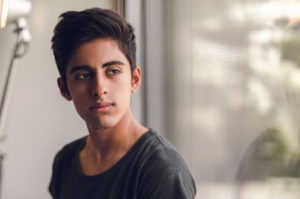
Master Harold…and the boys by Athol Fugard
Due to the colonial history of South Africa, I have always thought a version of Master Harold with Hally played by a South Asian actor would work and still ring true with regard to the power dynamics, racism, and class issues at the heart of this brilliant play.
Sam: Andre De Shields
Willie: Sterling K. Brown
Hally: Karan Brar
’Night, Mother by Marsha Norman
Jessie: Sandra Oh
Thelma: Amy Hill
Bonus round:
- Lea Salonga as Mama Rose
- Ken Watanabe as Willy Loman
- David Greenspan as the Misanthrope
- Taylor Mac as Mother Courage (or really, Taylor Mac as anyone)
Susan Booth, artistic director, Alliance Theatre
I’ve always loved Working, both the achingly raw Studs Terkel original and the Stephen Schwartz/Nina Faso illumination of it—but it has never felt more necessary than it does right now, as people across the globe are separated from their work. Dream cast? I want to hear the voices of Joe Morton and Keegan Michael Key (who sings like an angel; who knew?). I want the straight, no chaser storytelling of Michael Shannon. It’s a gift to shape-shifter actors and intellectual comediennes, so I’d have to find a place for Rachel Brosnahan and Alexandra Billings. And can you imagine what Audra McDonald would do with “Millwork”? Heaven.
Terry Teachout, drama critic, Wall Street Journal
Terence Rattigan wrote stylish, “well-made” plays about the English middle class and its deceptively genteel discontents. When such plays went out of fashion, his work vanished from American stages. Separate Tables, one of Rattigan’s very best plays, hasn’t been performed on Broadway since the original production, a transfer from London’s West End, closed there in 1957, and I’ve yet to see a professional staging of it in my 17 years as a drama critic. I can’t think of a play that I’d more like to see revived—and I’d like to see it done by American actors who aren’t trying to act like Brits.
Separate Tables consists of two interconnected one-act plays, “Table by the Window” and “Table Number Seven,” both of which are set in different rooms of a second-class residential hotel in Bournemouth. The two principal actors double in widely divergent roles in the two plays, an acting challenge of the first order. If I were putting a dream cast for a Broadway revival, I’d cast two of my all-time favorite stage actors in the double roles: John Douglas Thompson would play Mr. Martin, a disgraced, hard-drinking Labour politician, and Major Pollock, who appears to be an upper-class retired Army officer but in fact has two terrible secrets that would disgrace him were they to become known to the other residents of the hotel. The second of these roles would take him far outside his comfort zone, but I have no doubt that he could make a very personal kind of magic out of it. Playing opposite him would be Zoe Kazan as Mrs. Shankland, Mr. Martin’s ex-wife, whom he was sent to prison for beating, and Miss Railton-Bell, a shy young woman staying at the hotel who befriends Major Pollock.
Ty Jones, producing artistic director, Classical Theatre of Harlem
Dream on Monkey Mountain
We are in the midst of earth-shattering conversations on identity. What better way to ignite that dialogue than with this play by Sir Derek Walcott?
Makak: Wendell Pierce
Corporal Lestrade: Roger Guenveur Smith
Moustique: Carl Cofield
Tigre: Sterling K. Brown
Souris: Ty Jones
Apparition: Grace Jones
Big White Fog by Theodore Ward
This giant of a play spoke about Black advancement and socialism at a time when no one (least of all the ruling class) wanted to hear that polemic. How timely.
Victor Mason: Andre Braugher
Ella: Ami Brabson
Lester: Brandon Carter
Wanda: Letitia Wright
Percy: John Douglas Thompson
Dan Rogers: Andre Holland
Juanita: Roslyn Ruff
Martha: Andrea Patterson
Nathan Piszer: Joshua Jackson
Caroline: Kara Young
Philip: Reynaldo Piniella
Percy Mason: Manny Brown
Claudine: Gabrielle Djenné
Marks: Ryan Alvarado
Count Strawder: Danny Glover
Count Cotton: Glynn Turman
Sister Gabriella: Lynda Gravatt
Bailiff: CJ Wilson
Lt.: Liza Colón-Zayas
Patrolman: Russell G. Jones
Will Arbery, playwright
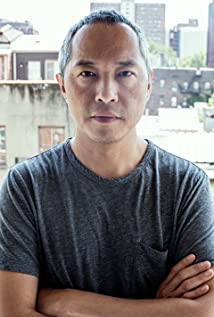
All of Wallace Shawn’s plays feel like classics to me, but Grasses of a Thousand Colors has haunted me more than any other. Sometimes I remember it as the longest joke I’ve ever heard. Other times like a eulogy for a sad alien I witnessed in a dream. It takes place in an unspecified future time in which all taboos seem to have been shattered, in which household pets are objects of sexual desire, in which food is giving people mysterious digestive illnesses, in which narcissism seems to be the societal mandate. It all feels ominous and prescient to me. I’d love to see these long, prismatic monologues performed by Ken Leung, with his simmering anger and ability to tunnel into language; J. Smith-Cameron, with her easy access to layers of tenderness and vulnerability and disdain; April Matthis, with her way of finding the cracks in language, and an unsentimentality that makes everything more poignant somehow; and Rachel Sachnoff, with her brilliant, strange matter-of-factness, making text feel like a private joke to herself. What a terrifying dream this revival would be. I want to watch it right now, all three hours of it.
The Memoirist (Ben): Ken Leung
Cerise: J. Smith-Cameron
Robin: April Matthis
Rose: Rachel Sachnoff
Zak Berkman, producing director, People’s Light
The most seismic play in my life is Caryl Churchill’s Top Girls. It was my college thesis directing project. I had seen the original U.S. production, then the 1992 Royal Court revival (three times), and then Caryl, who is a longtime family friend, invited me to observe the BBC filming of the play. I so wish I had been able to see Liesl Tommy’s production at Huntington. That very well could have been my dream production for the 21st century, but since I missed it, here’s my go at it. (and I’ll avoid repeats from Liesl’s)…
It would be directed Kamilah Forbes, designed by Mimi Lien (sets), Jen Schriever (lights), Clint Ramos (costumes), and Justin Ellington (music/sound). Admittedly, I have no idea what we might discover casting this way regarding the intersections of gender, race, class, and age, along with many other identity constructs through the lens of historic and present systemic discriminations within British and American capitalism, but I sure would love to be permitted in the room to listen and learn.
When I directed it we did it with 8 actresses; so I’m following that route rather than the traditional 7.
Marlene: Carra Patterson
Joyce/Isabella Bird: Patrese McClain
Angie/Dull Gret: Nikiya Mathis
Win/Lady Nijo: Stacey Yen
Mrs. Kidd/Louise/Waitress #1: Teri Lamm
Pope Joan/Shona: Danielle Skrastaad
Nell/Patient Griselda: Kimberly Chatterjee
Kit/Shona/Waitress #2: Brittany Anikka Liu

